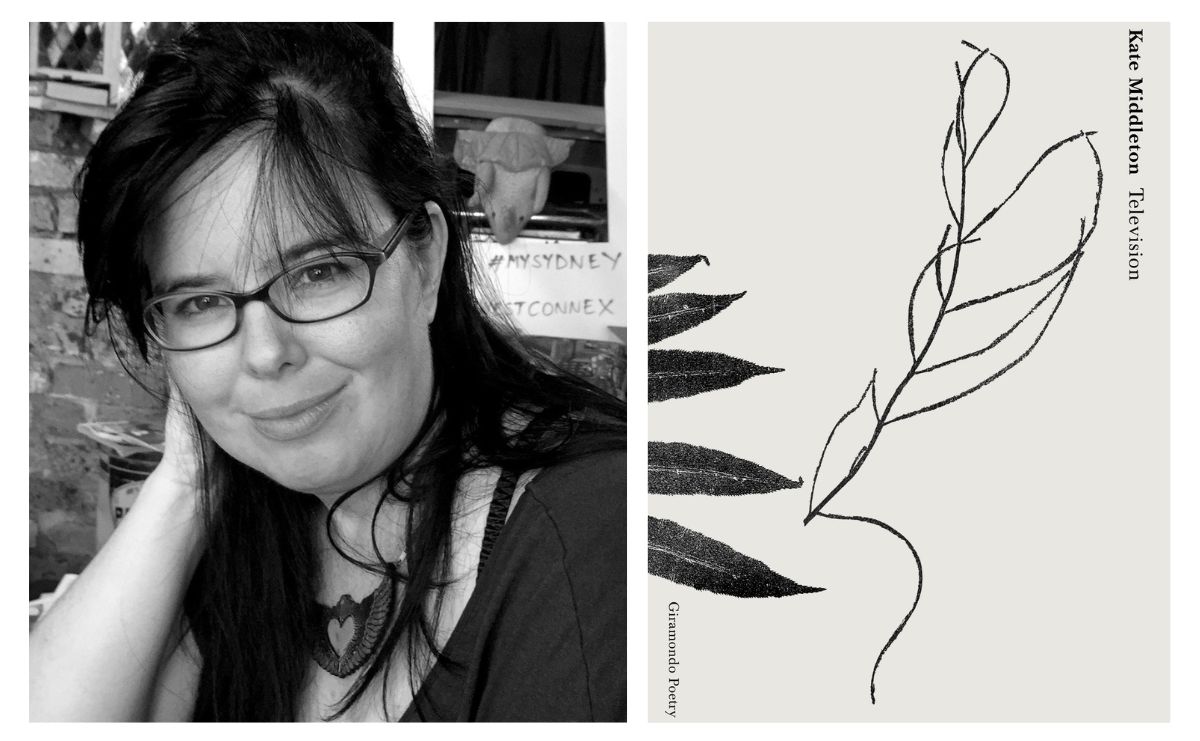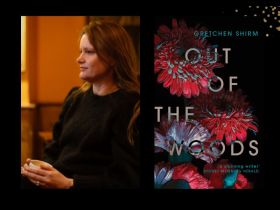Television is too often dismissed as vapid and lacking nuance and substance. Even the 24-hour news cycle and the promise it holds to enhance our understanding of the world is often cast aside as being too far removed from our day-to-day lives. Middleton’s Television is anything but these things. Through 33 poems, she interrogates and examines the ways in which the media we consume leaves an indelible mark on our psyche, shaping our orientation to ourselves and the world around us. Each poem is an ode to some of the television that has marked her over the years, leaving a lasting impression. There are a few scars, as well as beauty in this poetry collection; Television invites readers to reflect on their relationship with visual media.
‘To watch TV is often, for me, to watch a teen girl drama’ explores the tension between watching television and refraining from doing so. It prompts us to recognise the things we miss when we refrain from this pastime, including understanding the lives of others and the hurts that characterise them. This is as true for the lives of teenage girls depicted in soap operas as it is for the victims of war televised on the news.
The actors who portray the characters we so lovingly view on our screens are often terrorised by the hypervisibility that steals their lives from them. Television encourages practices of surveillance that are often harmful to both the viewer and the viewed. The beauty, as Middleton shows, lies in understanding that television also helps us to identify with the suffering of others and recognise it in our own lives. The question that remains is whether to tune in or disconnect.
‘I discovered a version of God when I woke too early’ speaks to a writer who entertains the presumed impotence of religion. A young child wakes in the mornings to feast on cartoons only to be met with sermons that invite a relationship with God. The only God who echoes through Middleton’s later viewings of The Handmaid’s Tale, however, is oppressive.
Watching sermons and other television did not create room for a deeper understanding of God. Instead, it opened Middleton’s eyes to a mediated version of piety that failed to facilitate conversion. ‘I discovered a version of God’ is a poem that questions whether our choice of entertainment may or may not shape our self-understanding. It highlights that viewers are never passive, but can negotiate what is presented to them. The viewer is not silent.
Middleton uses television shows and characters (for example, Punky Brewster and She-Ra) that underlie her critical engagement with visual media as metaphors. They are there, among other things, to help us understand the gains society has made in terms of gender equality and queer representation, while alerting us to the ways in which societies continue to fail refugees and asylum seekers and other displaced people around the world. Not only this, but how we continue to fail the Earth.
Other cultural references include Astro Boy, a humanoid android, and the death of Luke Perry who played teenage heart throb Dylan McKay in 90210. Hey Dad..! also features in the television that shaped her childhood as Middleton writes about her discovery that the town the show is set in is real. She also evokes The Castle and notes how her family travelled to Bonnie Doon and sang the quintessential ‘we’re going to Bonnie Doon’ just like in the film.
Middleton has watched a varied amount of television in her life and her references are recurring. Television is a nostalgic trip down memory lane that urges readers to reflect on how they make sense of their own experiences of being human. The Fly by David Cronenberg emerges as a metaphor for the myriad transformations and growth we all must undergo in life. Her fascination with Twin Peaks reveals that television is often just as horrific as real life and often does not provide the escape we seek. Here, the opulence and generosity of figures such as Oprah emerges as a godsend.
Her poetry is a form of sense-making. A sense of grief at the lives not led by the characters in the television series Middleton admires and grew up with also animates Television’s pages. Here, she appears to dream of a world without the loss of futures we often take for granted.
Television reads like a series of essays that jump from one allusion to the next, laying out the relationship between the writer’s life and the media she consumes, and how she does so. Middleton paints solemn images that are attentive to the complex ways in which television permeates and affects our worldviews and practices. She opines that it is a ‘medium that concerns itself with walls, their destruction’, and her poetry leaves space to wonder about how this takes effect in individual lives.
Television highlights that we, more often than not, choose what we pay attention to and that there is both beauty and violence in that act. Middleton does not explain herself and the references she makes. She merely invites us into her world and that of the media and personalities that have enriched her life.
The book is not reducible to the self-indulgent recollections of a fangirl; it urges the reader to contemplate the implications of viewership. It is a poetry collection for those who wonder about the influence and impact of their viewing choices on their self-understandings and their orientation to the world.
Read: Theatre review: Stunt Double, Perth Festival
It unpacks the role of media in our lives and the importance of critically engaging with everything we consume. Middleton is well-aware of the influences that have shaped her and Television urges readers to develop their own awareness of the influences that shape them. Her book is a delightful read that is worthy of contemplation in its own right.
Television, Kate Middleton
Publisher: Giramondo
ISBN: 9781922725790
Pages: 112pp
RRP: $27
Publication date: February 2024





